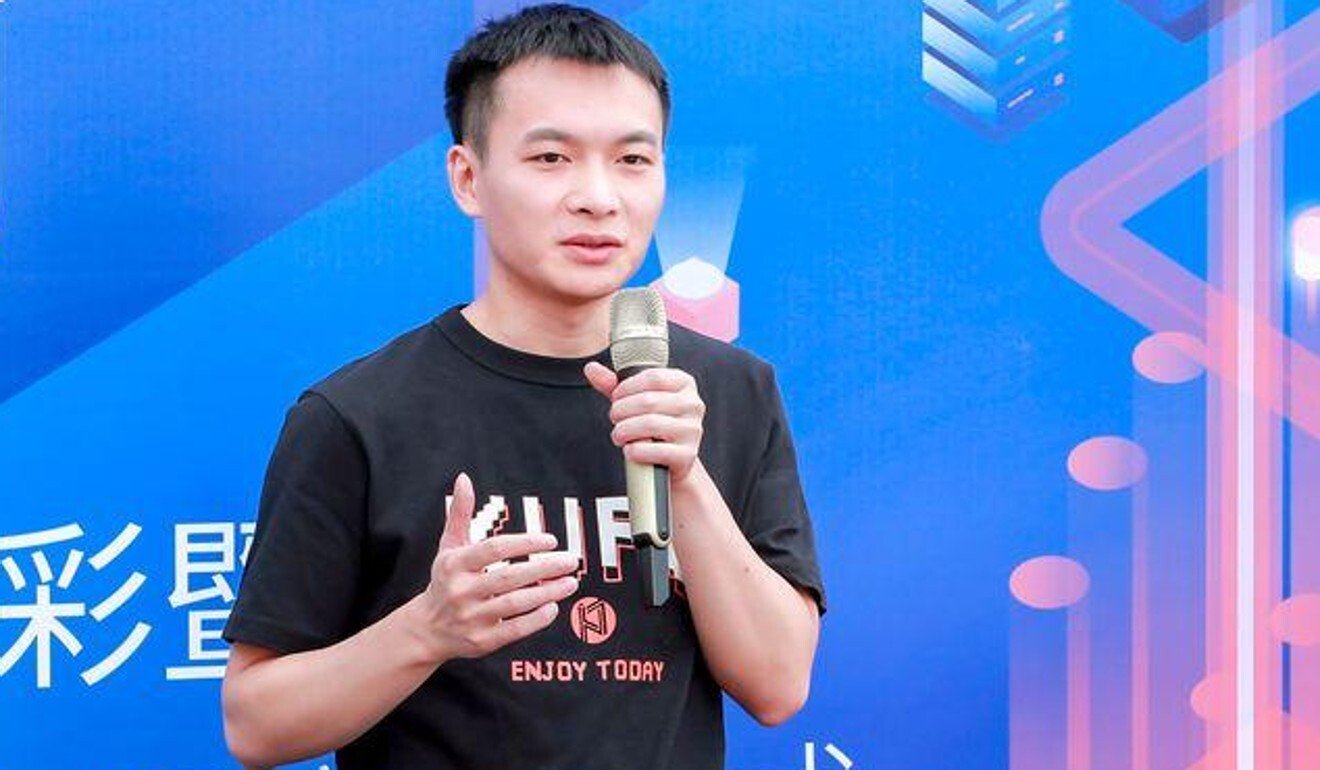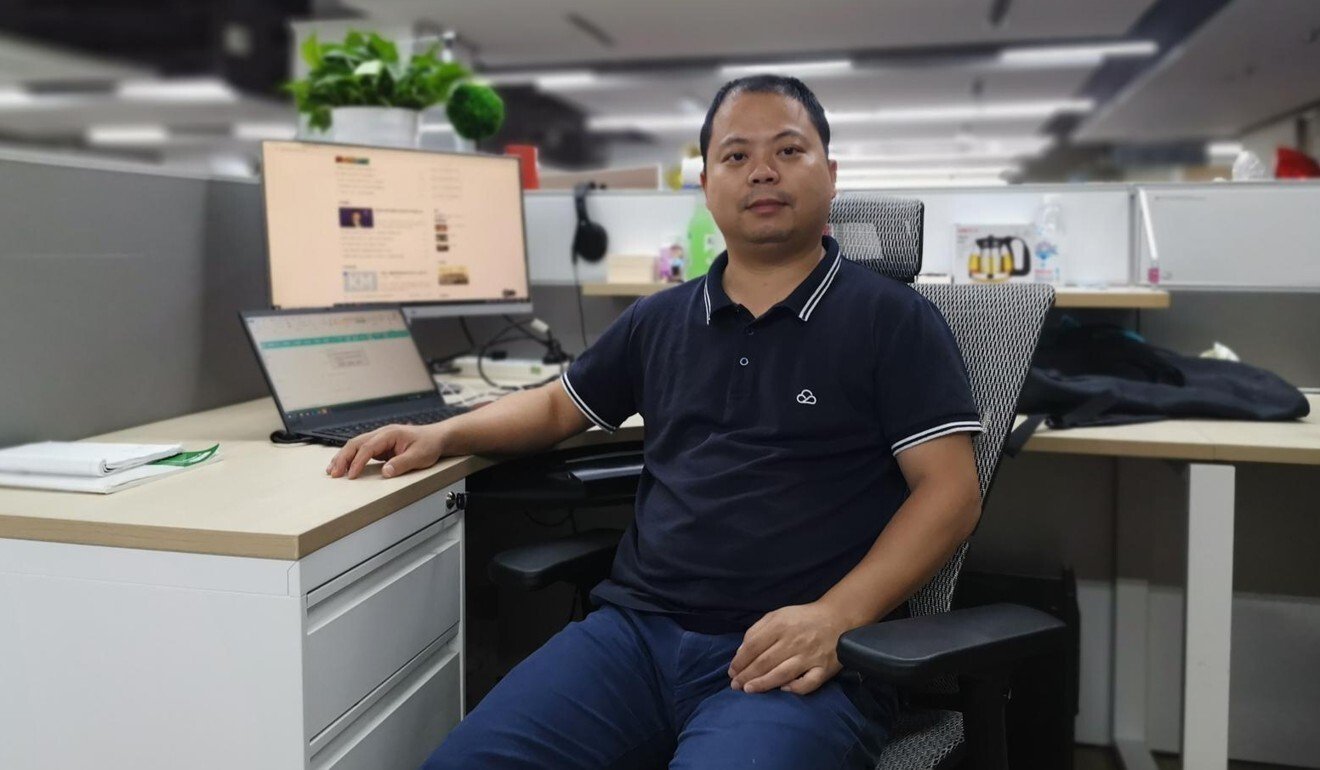
How 4 Chinese millennials have found secret of hi-tech success in Chengdu
- Capital of Sichuan province’s reputation as hub of innovation attracts entrepreneurs, skilled workers – and subsidiaries of 301 of world’s biggest companies
- City’s more than 20,000 tech start-ups can hire well-educated talent thanks to municipal government’s wide range of job recruitment efforts
Chengdu, the capital of China’s Sichuan province – one of the most important business, financial and cultural centres in the southwest of the country – has become a magnet for skilled millennial workers looking to develop their careers in the thriving, laid-back urban environment.
It is a leading player among the nation’s “new first-tier cities” – those at the top of the four-level ranking system that classifies the business attractiveness of cities according to their administrative level and the size of their gross domestic product and population.
In Chengdu I saw the explosive growth of tech start-ups. For young entrepreneurs, there is more room here to create and more opportunities to succeed
Today it is known as a hi-tech hub of innovation, which is particularly enticing to talented young tech industry professionals.

Some the country’s multinational tech conglomerates, such as Tencent and Alibaba – which owns the South China Morning Post – have established strategic subsidiaries in Chengdu, along with 301 of the world’s biggest companies on the Fortune Global 500 list, including IBM from the United States, South Korea’s Samsung and SAP from Germany.
Chengdu, which is also home to more than 20,000 tech start-ups, was ranked fourth in new economy sector volume across China in a 2018 Deloitte report.
The city has China’s fourth-highest population – with an urban population of 11.9 million and more than 16 million in the greater Chengdu area – according to 2018 figures provided by Chengdu Bureau of Statistics.

Well-educated talent is attracted to the city, with 6.6 per cent of entrepreneurs returning from overseas choosing to start their businesses in Chengdu – only Beijing and Shanghai were more popular destinations – according to a 2017 study by the Beijing think tank, Center for China and Globalization.
Chengdu, which is home to more than 20,000 tech start-ups, was ranked fourth in new economy sector volume across China
The wide range of recruitment plans aimed at highly skilled workers, initiated by the municipal government, have helped to make Chengdu attractive to young professionals ready to embark on fruitful careers.
Check out the stories of four people, to see how and why they chose to live and work in Chengdu. Although they have different educational backgrounds and professional experiences, they share one thing in common – a determination to settle down in the same dynamic, ever-evolving city.
Gan Chun, founder of Kupo Group

“I never had a second thought about where to launch Kupo,” says the 31-year-old fintech entrepreneur Gan Chun, dressed in a hoodie and sweatpants, as he sits in his brightly lit office in Chengdu’s hi-tech zone.
Gan, who moved to Chengdu from the neighbouring city of Zigong when he started university, first showed an interest in technology as a child when he began to play with his father’s work computer in the 1990s.
He learned to use QBasic computer programming before he was 10 and was already earning thousands of US dollars from a small advertising business he had set up with friends before leaving secondary school.
While still at university and also during the first few years after graduation, Gan worked for a number of tech start-ups in areas such as social media and software as a service (SaaS). In 2016 he became a software engineer at a Hangzhou fintech company, but – keen to “do things that had more impact” – he returned to Chengdu to start his own tech business.
Chengdu has established its own position in consumer services, with a special focus on hi-tech [companies]
Gan says Chengdu attracts young tech entrepreneurs such as him for three main reasons.
Above everything else, the city is known for having a liberal and progressive environment, which he says is similar to China’s southern tech centre, Shenzhen. Chengdu’s Silicon-Valley-style atmosphere “appeals especially to tech talent” who are keen to make their mark in the industry, he says.
Secondly, rather than trying to compete with the thriving manufacturing industries found in China’s well-developed coastal cities, “Chengdu has established its own position in consumer services, with a special focus on hi-tech [companies],” Gan says.
The city has also been able to attract skilled workers thanks to the municipal government introducing several competitive talent-recruitment plans, including last November’s Gold Panda Talent Recruitment Initiative. This helped Kupo entice tech talent from other first-tier cities such as Beijing and Shanghai, he says.
Gan set up Kupo Technology, which provides blockchain solutions to clients in fields such as finance and media, in late 2017. Since then the company, which has attracted funding from top venture capital firms such as IDG and Matrix Partners, has expanded – moving from one small office to the whole floor of a building to accommodate more than 100 staff.
Wen Xingtao, cloud architect at Tencent

Before moving to Chengdu, Wen Xingtao worked as a software engineer helping to develop Tencent’s website at its Shenzhen headquarters.
In late 2010, when Tencent announced plans to set up a Chengdu subsidiary, Wen, 38, was one of dozens of Tencent staff to pack his bags in search of new career opportunities with the company.
Tencent’s subsidiary is located in the Chengdu Hi-Tech Development Zone, in the south of the city, where many other tech companies can be found.
However, Wen says the city’s suburban area has also developed into a thriving innovation hub over the past decade, during which his team at the Tencent subsidiary has expanded many times.
Chengdu has abundant human resources, which I believe will help accelerate the combination of cloud computing and use of the internet by industries
He says he is very optimistic about the future of hi-tech development in Chengdu. For example, Tencent Cloud, the company’s cloud computing service – one of Tencent’s key technologies developed in the city – has been introduced to other cities in western China, he says.
Tencent Cloud has been used in surrounding cities in areas such as big data, artificial intelligence, and Internet Plus – China’s plan to integrate cloud computing, big data and Internet of Things (interconnected, embedded computing devices) with a variety of industries, including agriculture, manufacturing, internet banking and commerce.
“Chengdu has abundant human resources, which I believe will help accelerate the combination of cloud computing and use of the internet by industries,” Wen says.
He says he now plans to help “promote Tencent’s cloud computing technology to different industries in western China”.
Bao Jinsheng, sales manager at Mechat Technology

When the 25-year-old millennial followed his then-girlfriend to Chengdu, he did not expect he would one day regard the city as a second home.
Bao graduated with a computer science degree in his home city of Chongqing in 2016 before working in Beijing at a mobile start-up.
After two years, driven by his love for the Chengdu native, he started looking for jobs in Chengdu and became a sales manager at Mechat Technology, a leading cloud customer service provider committed to helping companies target clients and gain new growth momentum.
Bao also fell in love with the company’s working environment and management structure. He is part of a close-knit group of friends formed from his many millennial colleagues – something he never enjoyed while in Beijing.
It is because Mechat is expanding at such a rapid speed that I decided to settle down in Chengdu
He also enjoys Chengdu life because of the more flexible working routine offered by Mechat, with the chance to work remotely with clients based outside Chengdu – including answering questions or settling disputes using WeChat, or talking over the phone – which has cut down his commuting and given him a more settled home life.
Bao’s company, situated in the busy hi-tech zone in the south of the city, operates at a fast pace – just like the tech giants based in other first-tier cities such as Beijing and Shanghai, he says.
“Our office lights are still on at 10pm, just like those in Beijing’s Zhongguancun Tech Hub [the nation’s earliest and most successful tech park, which houses the headquarters of tech behemoths such as ByteDance and Tencent].”
Mechat, which was established in Chengdu in 2013, had served more than 300,000 different businesses, in areas such as education, e-commerce, finance and real estate, up to the end of 2019.
“It is because the company is expanding at such a rapid speed that I decided to settle down in Chengdu,” says Bao, who is considering buying a flat in the city so he can start a family.
Monica Wang, project manager at Testbird
Monica Wang is a 30-year-old Chengdu native who, after gaining her master’s degree in business at Pepperdine University in Los Angeles, and then spending two years working for a Silicon Valley company in California, decided to enjoy the benefits of life in her home country.
“I was impressed by Chengdu’s hi-tech industry when I first came back from the US,” Wang says.
Many Silicon Valley tech start-ups have a relatively fixed way of implementing their ideas, she says, which left her craving an innovative ecosystem with “fewer rules and more adventures”. She found it after her return.
“It was in Chengdu that I saw the explosive growth of tech start-ups,” Wang says. “For young entrepreneurs, there is more room here to create and more opportunities to succeed.”
There are changes in Chengdu’s tech industry every day. I love accepting new challenges. That’s why I decided to stay
As a project manager at Testbird, a mobile test platform covering industries such as gaming, e-commerce and advertising, Wang is now putting into practice what she learned in the US.
She was a member of the company’s commerce team when she joined Testbird in July 2018, but after only five months she was promoted to the project lead in charge of distributing its paid content to overseas customers.
Wang was enjoying the foreign travel with her job before it was halted by the outbreak of the Covid-19 pandemic. During the previous two years she had visited the US and Spain on business, and took part in several tech exhibitions to introduce Testbird to users and investors abroad.
This year, she has transferred her project line online, so she can work remotely with clients that are interested in Testbird’s services.
Since its launch in 2013, Testbird has expanded into countries in East and Southeast Asia, Europe, and North America. It is the only mobile game test centre licensed by China’s top internet regulator, the Ministry of Industry and Information Technology.
“There are changes in Chengdu’s tech industry every day,” Wang says. “I love accepting new challenges. That’s why I decided to stay.”
Editor's note: Interested in learning more about Chengdu’s hi-tech future? Check out the upcoming Global Innovation & Technology Forum, to be live-streamed on Monday, September 28, when business, government and finance leaders will offer insights into how to nurture innovation – and explain how hubs such as Chengdu, Hong Kong and Singapore can form partnerships to develop Asia's pivotal role in driving the global economy.

